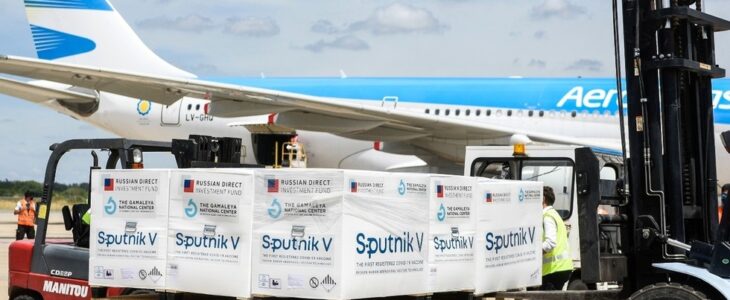
The European Medicines Agency is considering an application to approve the Sputnik V vaccine, developed by Moscow’s Gamaleya Institute, to protect the EU against coronavirus infection, the team behind the jab says.
In a Tweet on Wednesday, the developers of the Russian-made formula said they had met with the European Union’s (EU) healthcare regulator just one day prior. According to the Russian Direct Investment Fund, which financed the vaccine, they “filed for Sputnik V’s registration in the EU and expect it to be reviewed in February. Based on these reviews, the EMA will decide on authorization of Sputnik V for the EU.” While the process of approving a vaccine usually takes weeks, it has been expedited during the pandemic.

The Russian jab wasn’t on the list of those being considered for procurement by the bloc, which has begun immunizations using formulas developed by US pharma giants Moderna and Pfizer (which partnered with German company BioNtech to make its vaccine). However, in recent weeks, a number of EU member states have reported receiving far fewer doses of the Pfizer/BioNtech jab than expected. Countries including Estonia, Latvia, Lithuania and Sweden have branded the situation “unacceptable” and warned it “decreases the credibility of the vaccination process.”
In a statement last week, the US drug giant, also known for commercializing erectile dysfunction pill Viagra, said it was experiencing manufacturing issues due to changes designed to boost production. “Although this will temporarily impact shipments in late January to early February, it will provide a significant increase in doses available for patients in late February and March,” a Pfizer spokesperson said.

Russia made headlines in August when it became the first country in the world to register a vaccine against Covid-19. While a number of international scientists and commentators criticized the move as premature, the team behind its development say it was made on the basis of promising clinical trial results, published in The Lancet medical journal.
Since then, Russia has begun a program of mass immunization with the formula, and has exported vials to a number of countries across the world, including Argentina, Brazil and India. The team behind it says it has an efficacy well above 90 percent after two doses, and that it is substantially cheaper than the most efficacious of its competitors. It can also be stored at between two to three degrees Celsius, compared to the -20 and -70 degrees Celsius required for Moderna and Pfizer’s jabs, respectively. This potentially gives it an edge for use in widescale distribution.
Hungary risked a diplomatic row with Brussels over the Moscow-made Sputnik V when it announced it was exploring importing vials of it for research and testing. Eric Mamer, a representative of the European Commission, told journalists that there was “no question” that any vaccine made available in any EU country would first have to be approved by its own centralized regulator. “We are not in negotiations with either Russian or Chinese companies,” Mamer said. “That is the European vaccine strategy. All member states have signed up to this process.”
In December, Russian President Vladimir Putin’s spokesman, Dmitry Peskov, accused “some countries and their giant pharmaceutical companies” of working to block Sputnik V from entering the foreign market, arguing that international competition to create a vaccine had taken on a political dynamic. “These aspirations are not just noticed by the Kremlin, but they are visible with the naked eye,” Peskov said. “The competition is very tough, but it is good when this competition is, in fact, fair.”
The Kremlin’s comments came after a spokesman for Russia’s Defense Ministry warned that an information war was being waged against Sputnik V. “We know, in detail, what funds and resources are being given by foreign countries to discredit the domestic vaccine, in the world and in Russia,” said Major-General Igor Konashenkov. “Successful practical experience, as well as immunity formed in leadership and soldiers of various units, is a guarantee of its efficiency and safety.”
Credit: RT News
